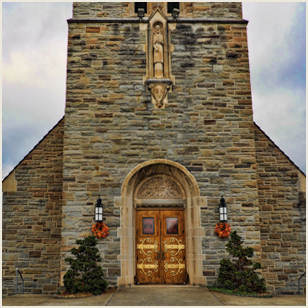Love (others), Page: Quotes, Quote Topic
Love never hates anyone, never reproves anyone, never condemns anyone, never grieves anyone, never abhors anyone, neither faithful nor infidel nor stranger nor sinner nor fornicator, nor anyone impure, but instead it is precisely sinners, and weak and negligent souls that it loves more, … imitating Christ Who called sinners, and ate and drank with them.
–Abba Ammonas (Desert Father)
Grace, Jerome (c. 340-420), Page: Quotes, Quote Author, Quote Topic
It is our part to seek, His to grant what we ask; ours to make a beginning, His to bring it to completion; ours to offer what we can, His to finish what we cannot.
–Saint Jerome (c. 340-420)
Humility, Quote Topic
If you think little of yourself, you will have peace wherever you live.
–Abba Poemen (340-450)
Augustine (354-430), Church, Grace, Page: Quotes, Quote Author, Quote Topic
All graces given to those outside the Church are given them for the purpose of bringing them inside the Church.
–Saint Augustine (354-430)
Page: Quotes, Quote Topic, Repentance, Spiritual (life)
A person’s soul should be clean, like a mirror reflecting light. If there is rust on the mirror his face cannot be seen in it. In the same way, no one who has sin within him can see God. But if you will you can be healed. Hand yourself over to the doctor, and he will open the eyes of your mind and heart. Who is to be the doctor? It is God, who heals and gives life through his Word and wisdom.
–Saint Theophilus of Antioch (Second Century)
Page: Quotes, Quote Topic, Spiritual (life)
God is seen by those who have the capacity to see him, provided that they keep the eyes of their mind open. All have eyes, but some have eyes that are shrouded in darkness, unable to see the light of the sun. Because the blind cannot see it, it does not follow that the sun does not shine. The blind must trace the cause back to themselves and their eyes. In the same way, you have eyes in your mind that are shrouded in darkness because of your sins and evil deeds.
–Saint Theophilus of Antioch (Second Century)

